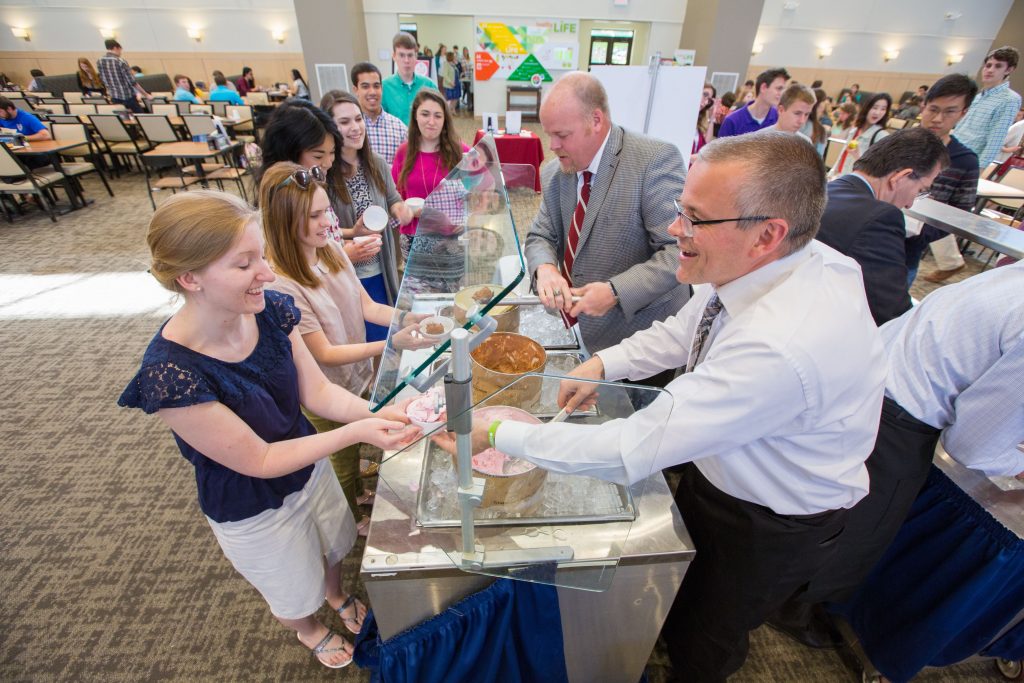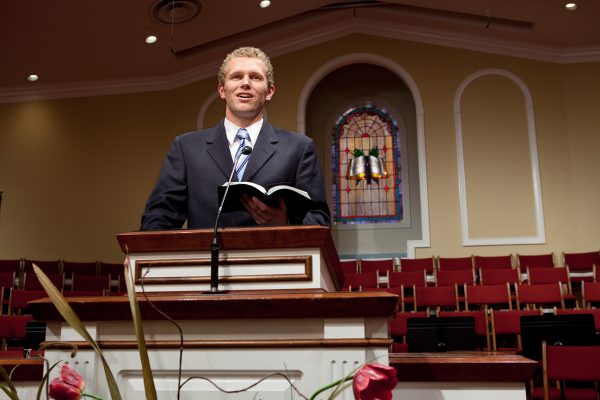“Now after the death of Moses the servant of the Lord it came to pass, that the Lord spake unto Joshua the son of Nun, Moses’ minister, saying, Moses my servant is dead” (Josh. 1:1–2).
When you think of Moses and Joshua, your mind likely races back to the Exodus, the wilderness wanderings, and the conquest of the Promised Land. You likely see Moses and Joshua as the divinely appointed leaders throughout these events, and rightly so.
But the opening verses of Joshua confront us not just with the reality of leadership but also with the reality of servanthood. You could say (as is often said these days) that this is servant leadership.
Notice the chain: Moses is the servant of the Lord, and Joshua is the minister of Moses. Moses’ name appears in fifty-one verses in the book of Joshua; in seventeen of those verses, he is called the servant of the Lord. At the end of the book, Joshua is also called the servant of the Lord (24:29).
The overwhelming majority of English translations render the Hebrew ‘ebed as servant in Joshua 1:1. But at least one version, the Jubilee Bible 2000, reads slave. I’m not qualified to part company with the great host of scholars preferring the first rendering, but I wonder if the term servant can be misleading—as if we’re talking about a well-groomed butler serving caviar to upper-class elites in a refined southern mansion.
Were Moses and Joshua great leaders? No doubt. But they were great leaders precisely because they were great servants.
The ultimate example of servanthood
To most of us, the thinking here is counterintuitive. Jesus testified, “Ye know that they which are accounted to rule over the Gentiles exercise lordship over them; and their great ones exercise authority upon them” (Mark 10:42).
That’s how life works, right? You work hard so that you can move up the food chain in life—become a manager, a CEO, a boss, a governor, even a president. Nobody wants to be stuck in unskilled minimum-wage employment taking orders from cantankerous superiors for the rest of their lives. (No offense to those making minimum wage—that was yours truly in the not-so-distant past.)
“But so shall it not be among you,” Jesus said, “but whosoever will be great among you, shall be your minister: and whosoever of you will be the chiefest, shall be servant of all” (Mark 10:43–44).
In the context of Mark 10, James and John came to Jesus with a big, hairy, audacious request—“Grant unto us that we may sit, one on thy right hand, and the other on thy left hand, in thy glory” (v. 37). James and John were requesting to be second and third in command in Jesus’ future kingdom. (They clearly had to work out who would be second and who would be third.)
In response, Jesus asked a big, hairy, audacious question—“Can ye drink of the cup that I drink of? And be baptized with the baptism that I am baptized with?” (v. 38).
The “cup” here isn’t a tea party, and the “baptism” isn’t a game of Marco Polo at the swimming hole. Jesus used common Old Testament imagery to depict affliction (Pss. 69:2; 75:7–8).
“You want a crown?” Jesus asked, “How about a cross instead?”
That’s what was coming for Jesus—“For even the Son of man came not to be ministered unto, but to minister, and to give his life a ransom for many” (v. 45). The Lord of all became the servant of all: the God-man humbled Himself and suffered the humiliation of the cross to redeem us from our sins. Now Jesus is risen from the dead and ascended to heaven, granting eternal life to all who turn from sin and believe in Him.
A personal testimony
My mind goes back to the fall of 2007, my senior year in my undergraduate studies. As a student in the ministerial program, I had the option to intern at one of the local churches in the area. Bible-believing pastors came to campus for an official meet-and-greet with the senior ministerial students. After hobnobbing with the pastors, each student would make a commitment to intern at a church.
It was a high-pressure situation: how can any student make a decisive determination about a pastor and his local church based on a minute-long conversation? But it didn’t take long for me to make up my mind. Amid the crowd, I found a big sign that said, “Friday Night Youth Director Needed.” On one level, I suppose I had a heart for teenagers. (Sure, that’s what they all say!) In reality I was far more interested in the director part than the youth part.
Over time, I ended up preaching in that church nearly every service and having a considerable amount of administrative responsibility. I learned a great deal, and I’m sure I made some impact for the cause of Christ. But I also made a lot of mistakes—enough of them, at least, to puncture my ever-inflating ego.
Peter called on elders not to be “lords over God’s heritage,” but to serve as “ensamples to the flock” (1 Pet. 5:3). Yet far too many come into ministry just as I did, asking, “How can I lead?” rather than, “How can I serve?”
The application here is not just for aspiring ministers of the Gospel—it’s for all of us who have some position of leadership.
The best kind of pastor is a servant to his parishioners. The best kind of manager is a servant to his employees. The best kind of teacher is a servant to his students. The best kind of husband is a servant to his wife and children.
I’m reminded of the famous words of President John F. Kennedy: “Ask not what your country can do for you—ask what you can do for your country.”
Go, and do thou likewise.








